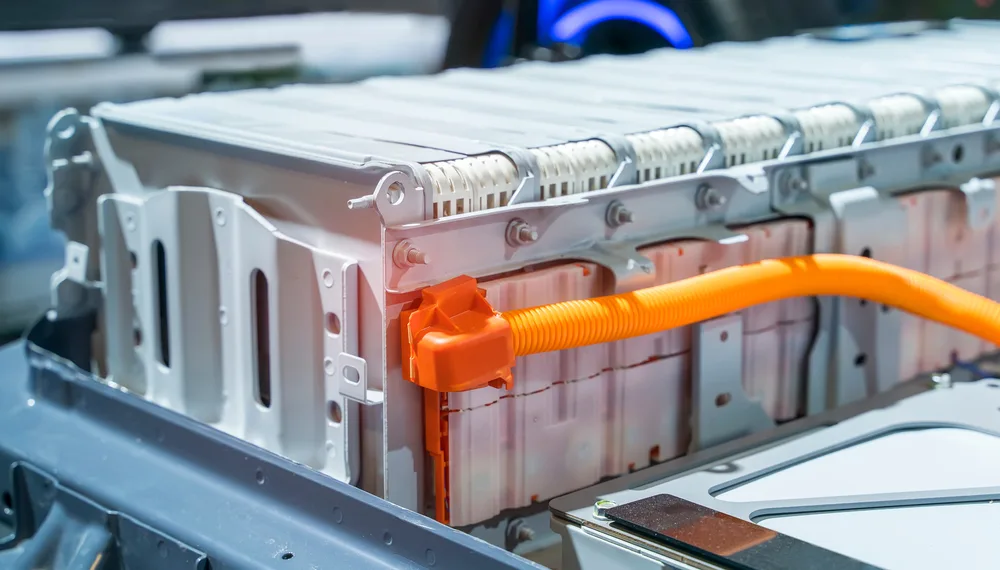
Electric vehicles (EVs) have gained significant popularity in recent years due to a range of factors, from their eco-friendly design and potential to reduce carbon emissions, to the wider momentum of EV advertising and social shift towards them. As EV technology continues to evolve, manufacturers are placing increased emphasis on safety features to ensure the well-being of both drivers and passengers. One crucial aspect of EV safety lies in the efficient management of battery temperature through cooling systems and insulation.
At Elmelin, we provide vital manufacturing support and solutions to the automotive sector, specifically EVs. The unique thermal and dielectric insulation properties of mica are the key reasons behind it being a core material within our EV battery insulation solutions. Our bespoke mica-based solutions are designed to be efficient, safe and long-lasting. Safety is critical to all of our solutions and is a major value of Elmelin, so we recognise both the importance of EV battery engine performance, but also the role safety plays in an EV. In this blog post, we explore how EV battery cooling systems and insulation play a vital role in ensuring vehicle safety.
Temperature management for battery longevity
EV batteries can generate excessive heat when in use, which can be further exacerbated by multiple factors, from external temperatures to battery condition. The heat generated within the batteries can have a detrimental impact on battery life and overall performance. To combat this, EVs are equipped with battery cooling systems and insulation solutions that help regulate and maintain optimal operating temperatures. Cooling systems use various techniques such as liquid or air cooling to dissipate excess heat generated during charging and discharging processes. By preventing the battery from overheating, cooling systems and insulation contribute to prolonging the battery life and reducing the risk of performance degradation, thereby enhancing safety and reliability.
Mitigating fire hazards
Safety concerns surrounding EVs often revolve around the potential for battery fires. Although rare, thermal runaway events caused by battery failures can lead to significant safety risks. To address this, manufacturers integrate advanced cooling systems that actively monitor and regulate battery temperatures to prevent thermal runaway and minimise the risk of fires. Additionally, insulation materials, such as ceramic coatings or fire-resistant barriers, are applied to the battery pack to provide an extra layer of protection against external heat sources and reduce the spread of fire in the event of an incident. Elmelin’s Compression Pads Plus are an excellent choice for EV batteries, as they maintain suitable pressure on the battery pack whilst providing thermal and electrical insulation.
Ensuring optimal performance and range
Battery performance and range are critical factors in the overall usability of an EV. Batteries subjected to extreme temperatures can experience reduced energy efficiency and diminished range. Cooling systems and insulation help maintain the battery within the optimal temperature range, ensuring that it operates efficiently and delivers the expected performance. By preventing temperature-related performance degradation, these systems contribute to a safer driving experience by providing predictable and consistent power output.
Regenerative braking system efficiency
Regenerative braking, a key feature of many electric vehicles, helps recover energy and extend the driving range. However, regenerative braking systems can generate substantial heat during the energy recovery process. Effective cooling systems and insulation help dissipate this heat, allowing the regenerative braking system to operate efficiently without overheating. By maintaining optimal temperatures, there is a consistent reliability of regenerative braking that ensures its seamless operation in various driving conditions.
Enhanced vehicle structural integrity
Beyond battery safety, cooling systems and insulation indirectly contribute to the overall structural integrity of an EV. By managing battery temperatures, they prevent heat-related damage to other vehicle components and systems, such as electronics and powertrains. Heat stress can compromise the structural integrity of these critical components, leading to malfunctions or even failures. With effective temperature control, cooling systems and insulation help maintain the robustness of the entire vehicle system, thereby improving safety and reliability.
Conclusion
EV battery cooling systems and insulation are crucial elements that significantly improve vehicle safety in electric vehicles. By maintaining optimal battery temperatures, these systems enhance battery longevity, mitigate fire hazards, ensure optimal performance and range, optimise regenerative braking efficiency, and protect other vehicle components from heat-related damage. As EV technology continues to advance, manufacturers will continue to invest in innovative cooling systems and insulation materials, leading to even safer and more reliable electric vehicles on our roads. Find out more about the EV battery insulation solutions we offer here.
Contact us today to learn more about how we can help you.
